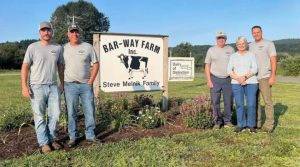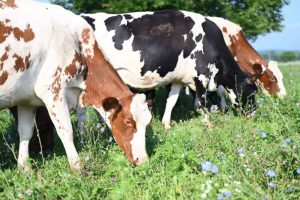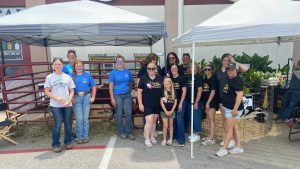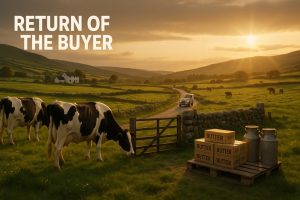
At Noble Springs Dairy in Franklin, co-owner Dustin Noble, says the last few months of hot and dry weather have dried up pastures, which is the primary food source for the goats. This comes as feed prices have jumped as high as 50 percent.
“It’s been a tricky couple of years to operate any kind of business, especially an agriculture business,” said Noble. “We are looking at a lot of increased expenses to keep dairy going, and keep animals fed.”
Noble Springs Dairy is located on 55 acres, and is home to 175 goats. It opened in 2009 and primarily produces goat’s milk and goat cheese.
The drought is just the latest challenge for dairy farmers who are still trying to overcome the pandemic. Noble said milk production slowed so much, he made the decision last week to stop selling goat’s milk and focus primarily on goat cheese. He has also come up with other ways to bring in revenue.
The farm sells tickets for tours on Saturdays from 10 a.m. to 1 p.m. where visitors can get an inside look at operations, enjoy a cheese plate, and play with the baby goats. The idea has paid off and has helped boost income.
However, Noble said without some help from Mother Nature there could be more challenging days ahead.
“I don’t think it’s going to be something we can get past this year,” said Noble. “We will probably have a slump in production for the next few months.”
Still, Noble remains optimistic that the farm can overcome this challenge and any others that come in the future.
“We’re going to be fine,” said Noble. “It’s interesting being an entrepreneur and figuring out how to pivot, and make your business survive through something like this.”
Ongoing drought conditions in Middle Tennessee are taking a toll on production at dairy farms across the area, and farmers are now making adjustments to protect their bottom line.

























